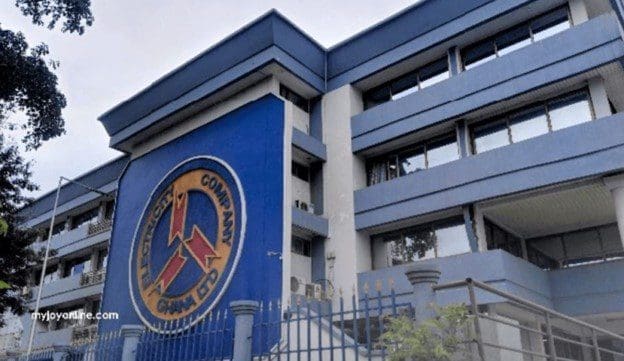
The Africa Sustainable Energy Centre (ASEC) has condemned the Electricity Company of Ghana’s (ECG) proposal to increase electricity tariffs by 225%, describing the move as unjustified amid the utility company’s operational inefficiencies.
ECG’s proposal would raise the Distribution Service Charge from GHp19.0384 to GHp61.8028 per kilowatt-hour for the period between 2025 and 2029, representing one of the most significant tariff adjustments in Ghana’s recent history.
ASEC, a leading African energy think tank that specializes in sustainable energy solutions and policy advocacy, argues that ECG must address fundamental operational challenges before pursuing any tariff increases. The organization demands accountability regarding missing ECG containers, progress on debt recovery from government institutions, and the status of the Ghana cedis 1 levy.
The criticism comes amid broader industry concerns about ECG’s financial management. The International Monetary Fund (IMF) recently endorsed proposed utility tariff increases as “essential from our perspective”, highlighting the complex economic pressures facing Ghana’s electricity sector.
ECG argues that its Distribution Service Charge currently constitutes 11% of the total electricity value chain cost, which falls below the global benchmark of 30-33%. However, ASEC contends that operational reforms, not tariff hikes, should address the company’s financial challenges.
The energy think tank emphasizes that continuous tariff increases have deepened economic hardship while power supply remains erratic across the country. ASEC advocates for progressive and transparent tariff adjustments tied to clear performance improvements rather than arbitrary increments.
Ghana’s electricity tariffs were already increased by an average of 14.75% in the second quarter of 2025, adding to consumer burden amid ongoing economic pressures. The Public Utilities Regulatory Commission (PURC) implemented a 2.45% increase across all customer categories effective July 1, 2025.
ASEC raises concerns about PURC’s approval process, questioning whether adequate research has been conducted on electricity users’ income levels, household electricity spending, and consumption patterns across different customer groups. The organization suggests these insights are essential for fair tariff decisions.
The think tank argues that solving ECG’s debt crisis requires accountability, innovation, and strategic reforms rather than passing costs to consumers. ASEC describes current approaches as “pouring water into a torn sack,” emphasizing that financial injections without operational improvements will not resolve underlying problems.
ECG’s revenue challenges prompted a nationwide revenue mobilization exercise in June, demonstrating the utility company’s ongoing financial difficulties. However, ASEC maintains that these challenges stem from internal inefficiencies rather than inadequate tariff levels.
The debate reflects broader tensions in Ghana’s electricity sector, where utility companies face mounting financial pressures while consumers struggle with economic hardship. Energy sector stakeholders continue debating how to balance cost recovery with affordability.
ASEC’s intervention adds weight to growing opposition against the proposed tariff increase. Other environmental groups, including the Institute of Climate and Environmental Governance, have also condemned the proposal as “monstrous” and unfair to consumers.
The think tank’s stance aligns with broader calls for utility sector reform in Ghana. ASEC advocates for innovative solutions and strategic partnerships to achieve sustainable energy access while maintaining affordability for consumers.
As PURC considers ECG’s proposal, the regulator faces pressure to balance utility financial sustainability with consumer protection. The commission’s decision will likely influence future utility sector policies and consumer electricity costs across Ghana.
The controversy highlights ongoing challenges in Ghana’s electricity sector, where aging infrastructure, operational inefficiencies, and financial constraints continue affecting service delivery and pricing strategies. ASEC’s criticism underscores the need for comprehensive sector reforms addressing both utility sustainability and consumer affordability.
